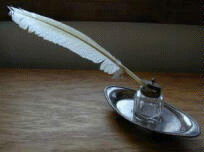A small band of doctors and researchers claim to have developed a cure for Autism.
These are the children the medical authorities say can't exist,-autistic children who are getting better through special diets, nutritional supplements and medicine.
They are being treated by a handful of Australian doctors who are defying standard medical practice by approaching autism as a physical disorder, rather than just a behavioural one. These treatments don't work for every child-and many are unproven by the gold standard of clinical trials-but some parents claim they are seeing tangible improvements in there children's austic behaviour.
They tell of "awakenings" in their children, such as a non-verbal five-year old suddenly talking and responding to toilet-training. Anecdotes like this sound "interesting" according to Dr. Lawrence Bartak, president of Autism Victoria and former president of the Autism Council of Australia. But he says this type of treatment is "crying out" for-more research. To test if the interventions-or some other factor-are contributing to improvements in the child's behaviour. Autism affects one-in-500 to one-in-1000 Australian children. Their parents are told there is no known cause or cure. The only proven treatment is behavioural therapy, but it can take years to train an autistic child to overcome symptoms like rigidity to routines, poor understanding of others and speech-delay.
Research from the US and Britain has recently keen fainting -at physical links to autism, such as gut disorders.
British researcher and gastroenterologist Dr Andrew Wakefield has found such a high rate of intestinal dysfunction in autistic children that he calls this a "unique disease process of Autism. In a colonoscopy study of 110 autistic children he found only three did not show signs of intestinal disorders. Now Harvard University is working on a medical protocol for treating autism following its research into the gut. Using 500 gastrointestinal endoscopes with biopsies, Harvard researchers found more than half of autistic children studied had treatable gut disorders including from esophagitis, gastritis and enterocolitis (inflamed gut and bowel).
These findings have excited scientists and parents, because they suggest that if the gut is healed, the autism may also improve. But this gut-brain link has yet to be conclusively proved and, until a casual link is found, debate will continue to rage over whether gut disorders cause autism or whether they are a side effect.
Although unfamiliar with the Harvard study Bartak says any reliable and replicated research showing a higher incidence of gut problems in autistic children would be "very interesting" . This would suggest that there may be some form of congenital abnormality that produces an -abnormal gut and is then doing something abnormal to their brain as well.
Sunderland University in Britain has come up with a detailed protocol for treating autism bio medically (i.e., treating symptoms in the body).
The Sunderland protocol advocates:-
Introducing the child to a dairy-free and gluten-free diet;
Testing for vitamin and mineral deficiencies and supplement as needed (common Zinc, cadmium, magnesium, vitamin A, C and some B vitamins);
Testing stools for parasitic organisms such as yeast or bacteria.
The child is then given treatment to address deficiencies and heal damage to the gut so they can better absorb nutrients. Protocol co-author Paul Shattock admits some of these interventions are untested and anecdotal.
But at the Autism Congress held in Melbourne in 2002 he recommended that parents start by introducing the dairy-free diet for three weeks to see if their child's behavior improved. Sydney pediatrician Dr Antony Underwood has put this form of
treatment to the test with encouraging-results. Underwood claims that a few of his patients now appear to have recovered from autism. They are attending standard schools, making friends and communicating at levels typical for their age. And while most don't reach full recovery, he has seen improvements in most of the 80 or so autistic children attending his North Shore surgery.
By James Charles 

